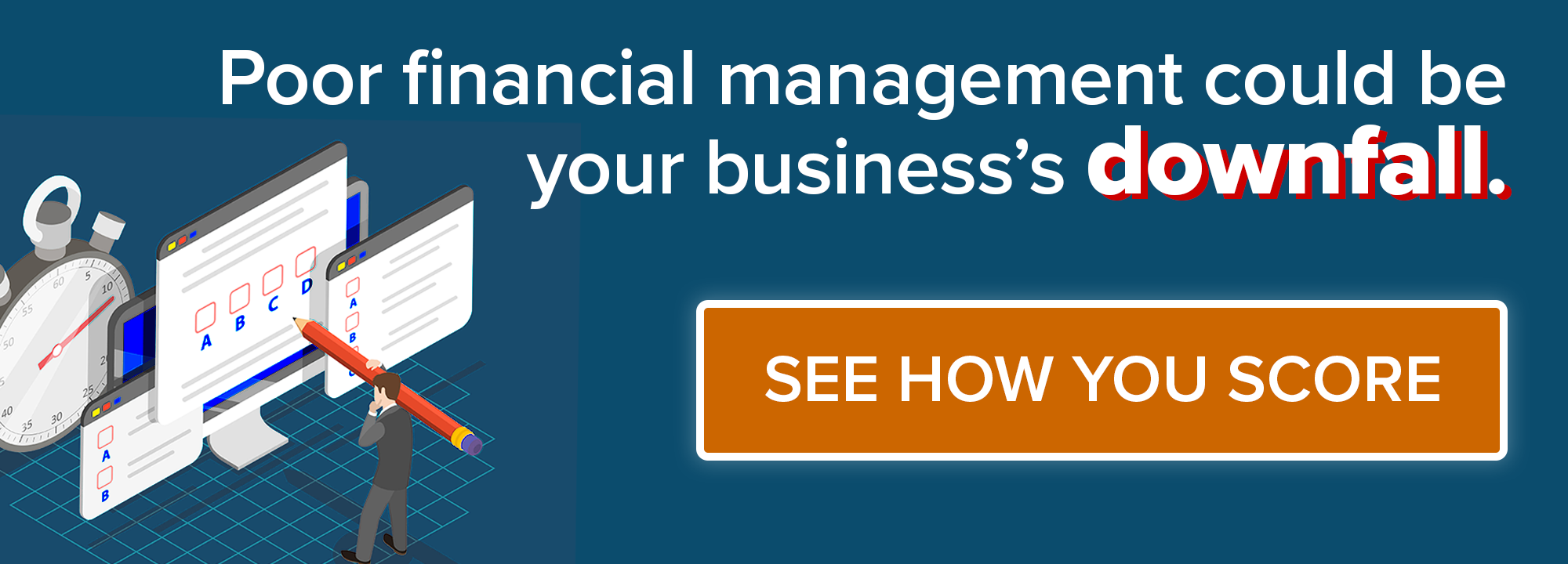6 min read

What Are the Responsibilities of a Post-Pandemic CEO?
CEOs should take a careful look at what is actually needed from them in their businesses to adjust their behaviors and take up these new roles.
|
Key Takeaways
|
Greater agility, however, is not the only responsibility of successful CEOs that has changed as a result of the unending, unprecedented challenges of the past several months.
CEOs have had to navigate supply chain disruptions, economic shut-downs, social unrest, social distancing and vaccine mandates, and continuously changing economic policies.
All of this has destabilized business and the traditional role of the CEO, who in the past had a job that mostly entailed business strategy and leadership decision-making.
Recent challenges, however, have created a more volatile, unpredictable landscape for businesses and the employees working in them.
As a result, the CEO's responsibilities and role are changing, and business leaders are being called upon to take a different approach to leadership in their businesses.
Instead of concerning themselves primarily with the board of directors and investors, CEOs must take a more direct, connected approach to how they interact with all of their stakeholders – employees, suppliers, vendors, customers, and communities included.
The Changing Role of the CEO: What Are the Responsibilities of a Post-Pandemic CEO?
As a CEO, your leadership style might have been perfectly acceptable and effective just a handful of months ago. Now, however, countless CEOs' leadership styles have become obsolete.
Without updating your leadership skills, honing business acumen, and learning how to spend your time wisely in an economic climate that leaves little room for mistakes, you could put your business in jeopardy.
Read More: How To Maximize Profit and ROI From Your People
To not only maximize profit and productivity from your people, but also to ensure your business can weather this ongoing economic storm, CEOs should take a careful look at what is actually needed from them in their businesses to adjust their behaviors and take up these new roles and responsibilities.
1. Change Management
Business strategy has always been in your wheelhouse, but now, you must be ready to pivot and adjust your strategy at the drop of a hat.
In this ever-changing, volatile business climate, it's essential for all CEOs to be quick on their feet.
Read More: US Markets Are Recovering: Is Your Business Ready for the Competition?
You need to keep a continuous watch on your marketplace, shifting health safety rules and regulations, the mercurial social/civil climate, and an economy that continues to feel more and more like a rug that could be pulled out from under us at any moment.
2. Open Communication
With all the uncertainty brewing in the business world, it's essential that CEOs understand that their employees also feel destabilized. For this reason, open and consistent communication is more important than ever before.
In fact, a recent survey from Edelman found that 63% of employees want to receive daily communication from their CEOs and 20% would like to hear from their leadership multiple times each day [1].
Establishing a regular schedule of communication designed to update, reassure, direct, and motivate your employees not only creates more stability and confidence in your workforce, but it also gives you an opportunity to better connect with the people you're responsible for leading.
More frequent and higher quality communication with your employees strengthens your relationship with them, increasing respect, trust, and employee engagement.
When you treat your employees like the essential stakeholders they truly are, you'll likely experience improved productivity and reduced employee turnover.
💡 Pro Tip: Consider implementing DiSC® training in your organization. DiSC is a research-validated tool to help your team communicate more effectively, by focusing on understanding people’s needs-motivated behaviors and emotions. This DiSC model establishes a common language employees can use to better understand themselves and those they interact with.
3. Empathy
In the post-pandemic business climate, CEOs can no longer act like the Great and Powerful Oz, operating as a man or woman behind a curtain. CEOs must be connected to their employees, their communities, and all of their stakeholders. They must show compassion and empathy.
A recent study found that in 2021 68% of CEOs admitted they worry they will be less respected if they show empathy in the workplace. However, only a quarter of surveyed employees said empathy in their organizations is sufficient. [2]
Read More: Lead The Pack With Emotional Intelligence
Operating with greater empathy could mean interacting individually with employees, putting out communications and updated policies that convey an understanding of the difficulties that everyone is currently facing, or it might mean starting an effort of some sort designed to support a community or nonprofit cause.
4. Accountability
CEOs must now also act with open accountability. It's no secret that there's a labor shortage. It's no secret that businesses are struggling to operate with supply chain problems. It's no secret that front-of-line employees are bearing the brunt of enforcing murky health and safety rules.
In the face of these challenges, CEOs need to stand up and take accountability for the situation that each of their businesses and employees are facing. If mistakes have been made, CEOs need to take ownership, learn from the mistakes, and clearly communicate the changes that are going to be made to avoid those problems in the future.
Likewise, when successes are achieved, CEOs need to step aside and give their employees credit where credit is due.
To hold onto or earn the respect and loyalty of their employees and communities, CEOs must practice accountability. They must become the brave faces of their businesses.
5. Employee Empowerment
The greatest innovation and success in the modern workplace comes from a CEO who operates with a growth mindset that creates psychological safety in the workplace while simultaneously implementing a hands-off management style and operational policies that empower employees to take charge and excel in their individual roles.
Read More: Leveraging A Growth Mindset For Business Growth
This type of workplace culture fosters creativity and innovation while boosting employee engagement.
The smart CEO recognizes that the power and potential of many are much greater than the power and potential of any one person. As a result, it's in every CEO's best interest to cultivate a workplace culture that fosters high-powered teams to increase productivity and engagement while driving profits.
Continue Testing the Financial Strength of Your Business
Although the new CEO accountability is more focused on people, workplace culture, and the cultivation of a leadership ecosystem within your company, CEOs must still keep a close eye on their numbers because your business's financial health is connected to everything you do.
Read More: Maximize Your Business Profit With High-Performing Teams
By identifying a selection of metrics and financial management reports to monitor closely, you can keep an eye on the financial health of your business as it relates to just about every aspect of your company from your people and your human capital management strategy to your operations, meeting style, and larger operating framework.
With a robust back office that's fully equipped to provide you with all of these financial insights and more, you can take up your new set of CEO responsibilities and set the mold for the new, successful leadership styles of the future.
[1] https://www.edelman.com/covid-19/perspectives/ceos-new-role-chief-empathy-officer





